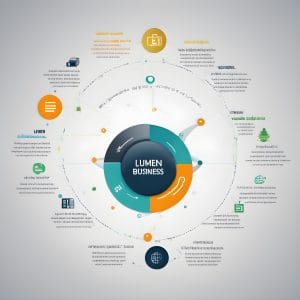
Blog
Check Your Project Management Essential Knowledge Before Starting with Zoho Projects
Ensure you have a solid foundation in project management principles and terminology to get the most out of Zoho Projects.
Ilan Gross
29 July 2024
Project Stages
1. Initiation
Concept Development: Identify the need or opportunity for a project.
Feasibility Study: Assess the viability and benefits of the project.
Project Charter: Create a document outlining the project's objectives, scope, stakeholders, and high-level schedule and budget.
Approval: Obtain formal approval from stakeholders or sponsors to proceed.
2. Planning
Define Scope: Clearly outline the project's scope, including deliverables and boundaries.
Develop Project Plan: Create a detailed project plan covering tasks, timelines, resources, and milestones.
Create Work Breakdown Structure (WBS): Break down the project into smaller, manageable tasks and deliverables.
Schedule Development: Develop a detailed project schedule using tools like Gantt charts.
Resource Planning: Identify and allocate resources, including personnel, equipment, and materials.
Budget Planning: Develop a detailed budget, estimating costs for each task and resource.
Risk Management Plan: Identify potential risks, assess their impact, and develop mitigation strategies.
Communication Plan: Establish how information will be communicated among stakeholders.
Quality Plan: Define quality standards and processes for ensuring project deliverables meet those standards.
Procurement Plan: Plan for acquiring any necessary external resources or services.
3. Execution
Kickoff Meeting: Hold an initial meeting to ensure everyone understands the project objectives, scope, and plan.
Task Assignment: Assign tasks to team members based on the project plan.
Resource Allocation: Deploy resources as planned.
Execute Project Plan: Perform the tasks and activities as outlined in the project plan.
Quality Assurance: Ensure project deliverables meet quality standards through testing and reviews.
Stakeholder Engagement: Maintain regular communication with stakeholders, providing updates and managing expectations.
4. Monitoring and Controlling
Performance Monitoring: Track project progress against the project plan using key performance indicators (KPIs).
Schedule Management: Monitor the project schedule, identifying any deviations and making necessary adjustments.
Cost Management: Track project costs, comparing actual expenditures to the budget and controlling costs.
Quality Control: Ensure deliverables meet quality standards through ongoing testing and reviews.
Risk Management: Monitor identified risks and implement mitigation strategies as needed.
Change Control: Manage changes to the project scope, schedule, and budget through a formal change control process.
Reporting: Provide regular status updates to stakeholders and sponsors.
5. Closing
Project Handover: Transfer project deliverables to the client or end user.
Final Documentation: Compile all project documentation, including reports, plans, and lessons learned.
Post-Implementation Review: Conduct a review to evaluate the project's success and identify lessons learned.
Stakeholder Closure: Obtain formal acceptance of project deliverables from stakeholders.
Release Resources: Release project resources, including personnel, equipment, and materials.
Project Closure Report: Document the project's final status, achievements, and any issues encountered.
10 Key terms to know about projects management:
Projects
Definition: Activities or initiatives with a start and end date aimed at achieving a specific outcome.
Key Points:
– Projects are temporary and involve subject matter experts executing specific tasks.
– Distinct from everyday repetitive tasks.
Project Life Cycle
Definition: The sequence of activities a project goes through, consisting of five phases: initiation, planning, execution, monitoring and control, and closing.
Key Points:
– All project methodologies follow these stages.
– Includes an iterative process of planning, executing, and monitoring until project completion.
Kickoff Meeting
Definition: The first meeting at the beginning of a project with stakeholders and team members.
Key Points:
– Occurs after planning and before execution.
– Confirms the project charter, sets expectations, and involves action planning.
Triple Constraint
Definition: Also known as the project management triangle or project priority matrix. Consists of three primary constraints: scope, time, and cost (budget).
Key Points:
– Project managers must balance these constraints to ensure project success.
Project Charter
Definition: A document that outlines all key elements of the project, including scope, high-level milestones, roles, and responsibilities.
Key Points:
– Essential for initiation and planning stages.
– Used in kickoff meetings to align team members and stakeholders.
Scope Creep
Definition: Uncontrolled changes or additions to the project’s scope, often due to stakeholder interference or misunderstandings.
Key Points:
– Can lead to project delays, budget overruns, and unmet deliverables.
– Prevented by adhering to the project charter and obtaining proper sign-offs.
Work Breakdown Structure (WBS)
Definition: A technique used to break down projects into smaller, manageable chunks.
Key Points:
– Creates a hierarchical decomposition of the project into levels (deliverables, departments, activities).
– Clarifies the project’s scope and tasks, making it easier to manage and execute.
Baseline
Definition: The original plan for scope, timelines, and budget, used to measure project performance.
Key Points:
– Helps monitor progress and deviations.
– Allows comparison of actual performance against the planned performance.
Gantt Chart
Definition: A bar chart that graphically displays the project schedule with tasks, timelines, and dependencies.
Key Points:
– Useful for monitoring the project’s schedule.
– Should not be the sole project plan; a detailed project plan with tasks and timelines is also necessary.
Deliverables
Definition: The end results or outputs of a project delivered to the client, end user, or department.
Key Points:
– Tangible or intangible products or services produced by the project.
– A critical measure of the project’s success.
YOU'RE IN GOOD COMPANY
Take the Next Step with Lumen Business Solutions
If you are an educator, industry leader, or student who believes in the importance of this initiative, we urge you to voice your support. Let’s work together to create educational opportunities that meet the demands of the modern tech industry and ensure that New Zealand remains at the forefront of technological innovation.

Ilan Gross



